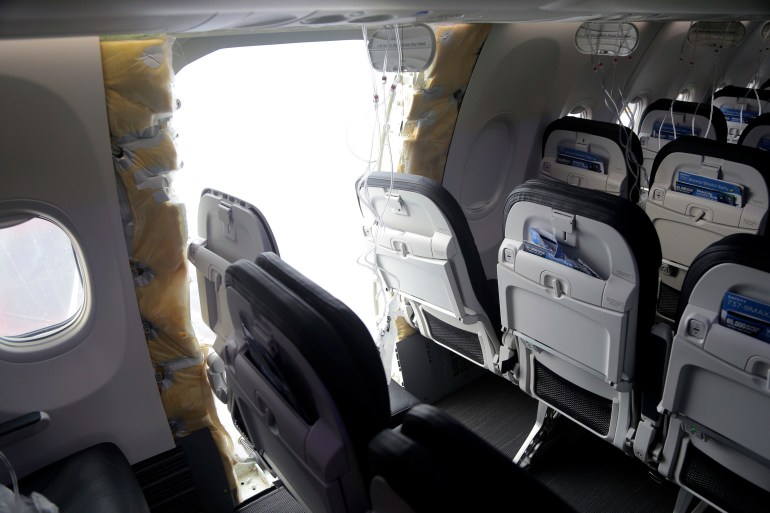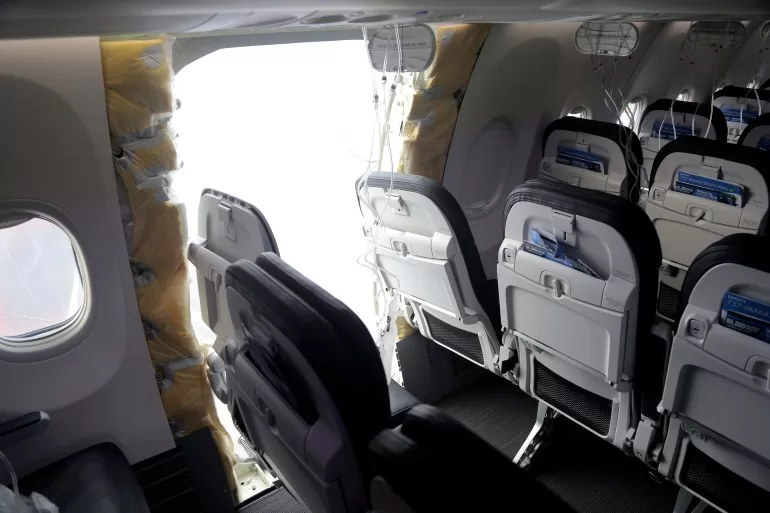Boeing is freezing hiring and is weighing temporary furloughs in the coming weeks to manage costs as a strike by more than 30,000 Boeing workers who build planes in factories on the West Coast of the United States stretched into its fourth day on Monday.
The strike would also impact spending on Boeing’s supply chain, since it would stop issuing the majority of supplier purchase orders on the 737, 767 and 777 programmes affected by the stoppage, CFO Brian West told employees.
“I know that these actions will create some uncertainty and concern,” West wrote in a letter shared on Monday.
“This strike jeopardizes our recovery in a significant way and we must take necessary actions to preserve cash and safeguard our shared future.”
The decision to stop placing most orders for parts for all Boeing jetliner programmes except the 787 Dreamliner is exceptionally rare, and will send shock waves through an industry still struggling to rebuild from the bottom up after COVID-19.
Some executives immediately warned of a vicious cycle of departures just as the industry is battling competition from other sectors to attract new aerospace workers and engineers.
“The smaller companies don’t have the cash to ride this out, so they will start layoffs,” a senior supply chain source told Reuters News Agency. “Then those people won’t come back immediately and round the cycle goes again.”
Boeing’s actions to protect cash come as company and union negotiators are due to resume talks over a labour contract on Tuesday. Rating agencies have warned that the work stoppage would adversely impact the planemaker’s recovery, with a lengthy strike set to strain Boeing’s already fragile finances.
Even before its factory workers downed tools, Boeing was wrestling with a safety and production crisis sparked by a door panel flying off a near-new 737 MAX plane in midair in January. The company is saddled with $60bn of debt.

“We believe an extended strike would be costly and difficult to absorb, given the company’s already strained financial position,” said S&P Global Ratings in a note on Monday.
“A shorter strike, on the order of weeks, would likely be manageable for Boeing and not lead to a negative rating action.”
Equity analyst Chris Olin at Northcoast Research said that Boeing would likely have to cut 33-35 jets from its production plan because of the strike, resulting in $102m lost revenue daily and as much as $3bn or more overall.
The International Association of Machinists and Aerospace Workers (IAM), Boeing’s largest union, last week overwhelmingly voted down a contract that included a 25 percent pay increase spread over four years, but removed an annual performance bonus.
S&P said this does not immediately affect its issuer credit rating or negative outlook on the company.
‘Paycheque to Paycheque’
Union leaders will meet with federal mediators and Boeing to restart labour negotiations on Tuesday, the IAM said in a post on its X social media feed on Saturday.
Jon Holden, the lead union negotiator, said on Saturday that workers wanted Boeing to increase its wage offer and reinstate a defined-benefit pension that was taken away a decade ago in return for keeping plane production in Washington state in the US.
Two union sources told Reuters they didn’t expect Boeing to restore the old pension, but that demand could be used to negotiate bigger company pension contributions and higher pay.
Union members on the picket lines outside Boeing factories around Seattle were bullish about their chances of getting a better deal out of Boeing, but few expect it to happen quickly.
“Not with the history of the way Boeing and the union have negotiated in the past,” said Chris Ginn, a 37-year-old who works in a factory north of Seattle building 777 jets.
This is the eighth strike since the IAM’s Boeing arm was established in the 1930s. The last two, in 2008 and 2005, lasted 57 days and 28 days, respectively.
Reuters spoke to five workers who were using these previous stoppages as a benchmark for their financial planning since they won’t receive their salaries during the strike. The union provides $250 a week to striking members.
“I can go for six weeks, eight weeks, but it’s up to Boeing management to decide when they want to offer a fair deal,” said Thinh Tan, an engineer in the 737 MAX factory.
Many factory workers are venting anger that has been brewing for more than a decade as they watched their wages lag behind inflation, while executive bonuses ballooned.
“I live paycheque to paycheque,” said Ginn, clutching his son in one arm and an ‘On Strike Against Boeing’ placard in the other.
